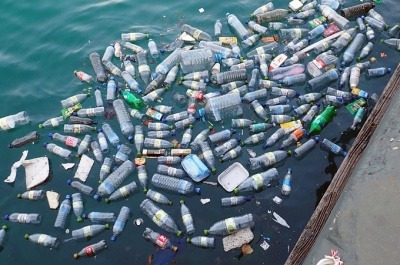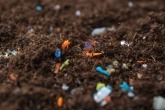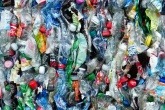One million tonnes of plastic additives pollute the world’s oceans each year
A new study has revealed that approximately one million tonnes of plastic additives leak into the planet’s oceans every year.
 The report – conducted by EA Earth Action – reveals the scale of pollution caused by these chemicals on an annual basis, with the organisation warning that, without substantial changes to production and waste management, the leakage of plastic additives into oceans and waterways could increase by over 50 per cent by 2040.
The report – conducted by EA Earth Action – reveals the scale of pollution caused by these chemicals on an annual basis, with the organisation warning that, without substantial changes to production and waste management, the leakage of plastic additives into oceans and waterways could increase by over 50 per cent by 2040.
The study – entitled ‘Adding It Up’ – further highlights that a significant portion of this pollution – approximately 116 kilotonnes – originates from plastic packaging materials alone.
EA Earth Action stresses the potential dangers this could pose to human health – the vast majority of additives found are untested, unregulated and have been linked to various health conditions such as obesity, cancer and fertility issues.
Everyday items such as textiles or vehicle tires provided a considerable contribution to the leakage into oceans at 37 and 35 kilotonnes respectively.
Publishing the findings ahead of the third session of the UN Global Plastic Treaty Negotiations (INC-3) – aimed at formulating a legally binding international treaty to tackle plastic pollution – EA Earth Action is calling for increased transparency on the composition of plastic products alongside the scaling of effective waste management practices across the globe.
Julien Boucher, Founder of EA Earth Action commented: “The findings of our report underscore the urgency of adopting a comprehensive approach to confront the challenge of plastic pollution and combat additive leakage effectively.
"The widespread inclusion of potentially harmful additives in plastics, combined with substantial amounts of mismanaged plastic waste worldwide, has created the toxic threat we face today.
“Addressing the problem with additives must be a key talking point at INC-3 if we are to protect the ecosystem and human health from its detrimental effects. Further research into these chemical compounds is critical to addressing the threats from the whole spectrum of plastic pollution.”
Calls to reduce plastic additives in oceans
EA Earth Action is calling on policymakers to select materials that are both more reusable and recyclable to help tackle the plastics crisis and drive towards a more circular economy.
The organisation has also called for further research on how and why plastic additives leak into the environment and the effects this has on the human body to enable governments worldwide to construct more effective prevention strategies.
Maria Westerbos, Founder of the Plastic Soup Foundation and Co-founder of the Plastic Healthy Council said: “The results of EA Earth Action’s Adding it up report are a sobering reminder of how additives toxify both our planet and our bodies. We should never forget that all these chemicals are added to plastics and, in that way, are released into the entire ecosystem, including our own bodies. We now must see action.”
“It is imperative that coordinated international cooperation between both the private sector and policymakers addresses additive leakage to preserve human health for the next generation.”
Sian Sutherland, Co-founder of A Plastic Planet and the Plastic Health Council added: “The omnipresence of plastic in our lives today belies its danger.”
Plastic is not on the periodic table, like cobalt or copper. It is a mixture of chemicals, many of them toxic to human health. In only a few decades we have infected every inch of our planet with such chemicals, leaching into our environment at escalating levels.
“The danger to next generations is clear and strong policy is urgently needed. But for policy to change, we need clarity on the extent of the crisis. This EA report exposes current practice and calls for safer chemistry. It is possible. But only if we demand it”.








